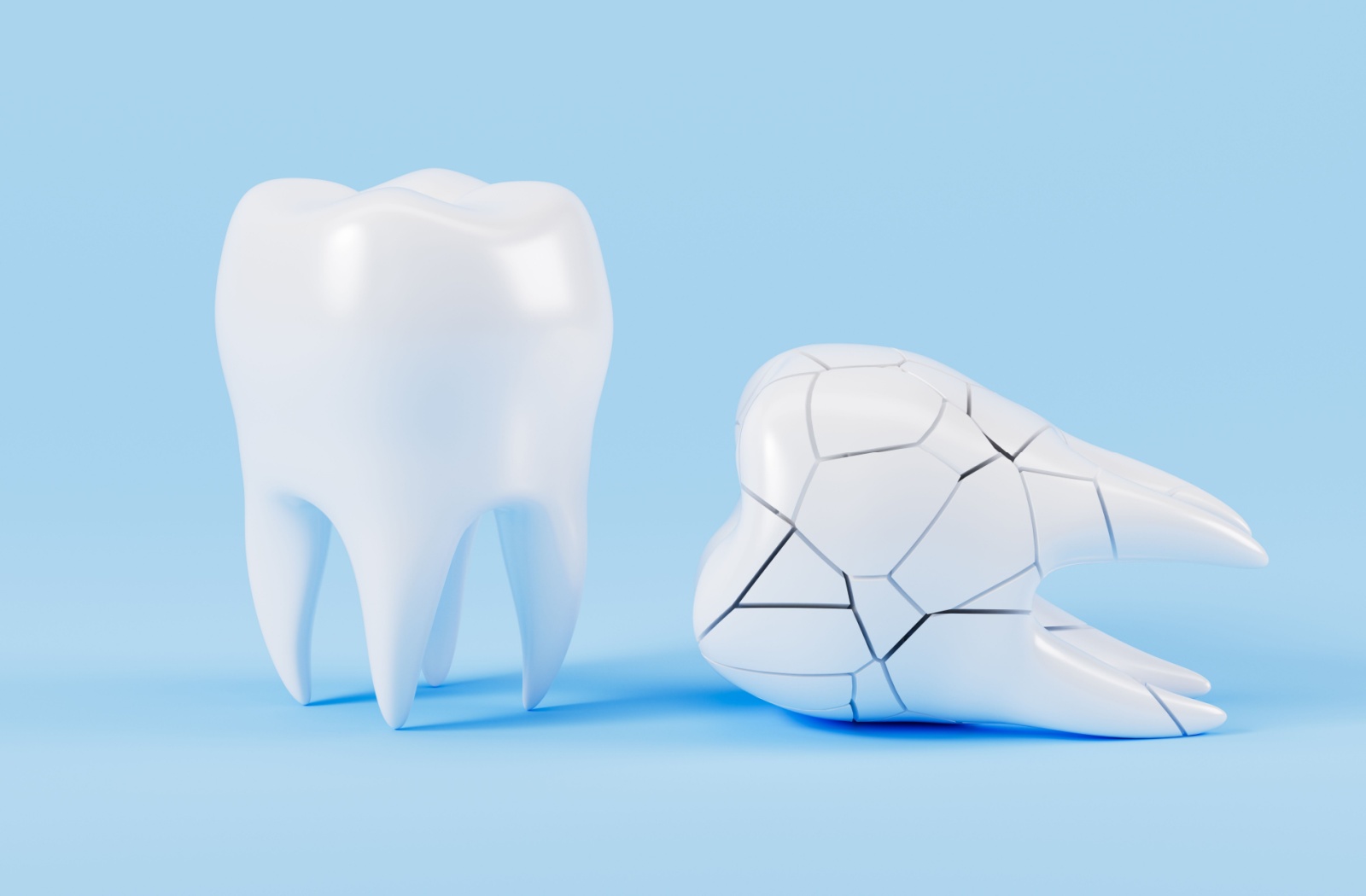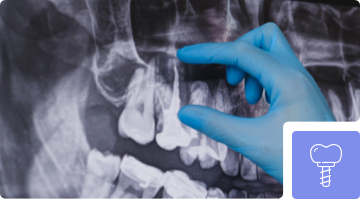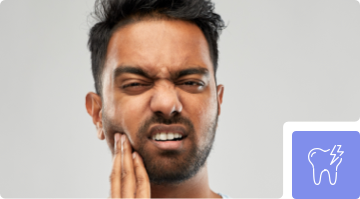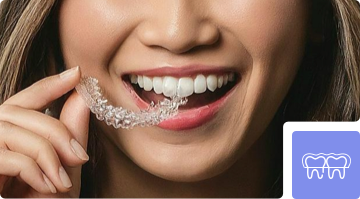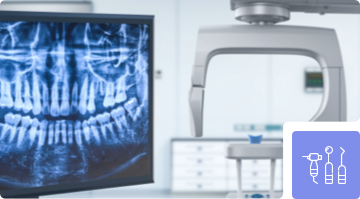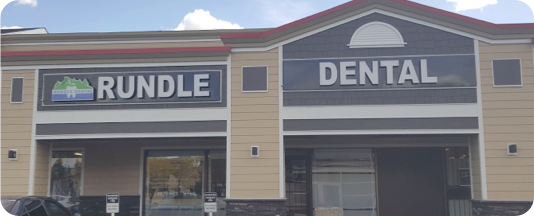Teeth are strong, but they aren’t indestructible. Like other areas of your body, wear and tear can damage their integrity, leading to accidental cracks. Before you immediately jump to the worst-case scenario (tooth extraction), take a moment to breathe.
No, a cracked tooth does not always need to be pulled!
Dental treatments are about finding the right balance between preserving as much of the natural tooth as possible while still protecting your oral health. Extracting a cracked tooth is only done as a last resort.
Problems tend to get worse the longer you delay treatment. If you suspect a cracked tooth, visit your dentist right away to protect your smile.
Why Do You Need to Treat a Cracked Tooth?
Do not ignore cracks in your teeth. Enamel cannot repair itself like other tissues in your body. It’s like ignoring a small leak in your roof—it will only get worse. Here’s why prompt treatment matters:
- Prevents further damage: Cracks tend to spread, especially when you chew or grind your teeth. What starts as a minor crack can eventually split the tooth completely, often making extraction the only option.
- Avoid infection: Cracks create pathways for bacteria to enter the tooth’s inner pulp, where the nerves and blood vessels live. This can lead to painful infections and abscesses that require more extensive treatment.
- Maintain function: A cracked tooth often becomes sensitive to temperature changes and pressure; treatment restores normal function, allowing you to eat and drink comfortably.
- Protecting surrounding teeth: An untreated crack can affect your bite alignment, putting extra stress on neighbouring teeth and potentially causing further dental problems.
Treatment for a Cracked Tooth
The good news is that we can safely treat a cracked tooth to keep your smile healthy and comfortable. The right treatment depends entirely on the crack’s type, severity, and location:
- Dental Bonding: For minor cracks that don’t extend deep into the tooth, your dentist can apply a tooth-coloured resin to seal the crack and restore the tooth’s appearance.
- Dental Crowns: When a crack is more extensive but the tooth’s root remains healthy, a crown can cap the entire tooth to keep it strong and protected. This is often the go-to treatment for cracked molars that endure heavy chewing forces.
- Root Canal Treatment: If the crack extends into the tooth’s pulp, a root canal may be necessary to remove infected tissue before placing a crown.
- Extraction and Replacement: Only when the crack extends below the gum line or splits the tooth vertically is extraction typically recommended. Even then, modern replacement options like dental implants can restore full function.
Pulling a tooth is always a last resort to protect your smile, never a first option. After carefully evaluating your case, your dentist will determine the right course of action.
Why Do Teeth Crack?
Cracks don’t happen out of nowhere. Here are some of the most common reasons behind this type of damage:
- Age: As we age, our teeth naturally become more brittle and susceptible to cracks.
- Chewing on hard objects: Ice, hard candy, popcorn kernels, and even pencils can create enough force to crack a tooth.
- Grinding and clenching: This puts enormous pressure on your teeth, especially while you sleep. Many people don’t realize they grind their teeth until damage occurs.
- Large fillings: Teeth with extensive fillings have less natural structure and are more prone to cracking under pressure.
- Sudden temperature changes: Drinking something very hot followed immediately by something very cold can cause the tooth to expand and contract rapidly, leading to cracks.
- Trauma: Sports injuries or accidents can cause immediate cracking.
And most importantly, using your teeth as tools. Ripping a bag of chips open with your teeth or using them to open a bottle of juice causes unnecessary stress, which we can avoid entirely.
Did I Crack My Tooth? Signs to Look For
A crack in your tooth isn’t always obvious—many are silent and don’t cause initial symptoms until problems arise. Some people have cracked teeth for months or years without realizing it, emphasizing the importance of routine dental cleanings and exams. Your dentist can detect cracks you might not notice.
That said, certain symptoms might suggest the presence of a cracked tooth. Here’s what to watch for:
- Sharp pain when biting: This is often the most telling sign. The pain typically occurs when you bite down and release, rather than during continuous pressure.
- Temperature sensitivity: Sudden, sharp pain when consuming hot or cold foods and drinks is a common indicator of a crack that’s affecting the tooth’s nerve.
- Intermittent pain: Cracked tooth pain often comes and goes, making it particularly tricky to identify.
- Sweet sensitivity: Some people experience discomfort when eating sugary foods, as the crack allows sweet substances to reach sensitive inner tooth structures.
- Difficulty pinpointing the source: You might feel pain but have trouble identifying which tooth is causing it, as the discomfort can spread to other areas.
What About Artificial Teeth?
While cracks in an artificial tooth won’t cause the same discomfort or nerve pain associated with natural teeth, that doesn’t mean you’re off the hook for treatment when damage occurs.
Cracks in an artificial tooth can lead to further damage, compromise its appearance and function, and affect your overall oral health.
On the bright side, artificial teeth are often easier and faster to repair or replace than treating a cracked natural tooth. Your dentist can often repair minor chips and cracks in-clinic, while larger problems might require creating a new restoration.
Safeguard Your Smile
Before letting the panic of cracking a tooth take over completely, remind yourself that it isn’t the end of the world. Your dentist is here to repair, restore, and protect your beautiful smile. The sooner you take action, the better the outcome. If you suspect a crack in your tooth, take action now. Connect with Rundle Dental to book an appointment to keep your smile healthy and strong.

